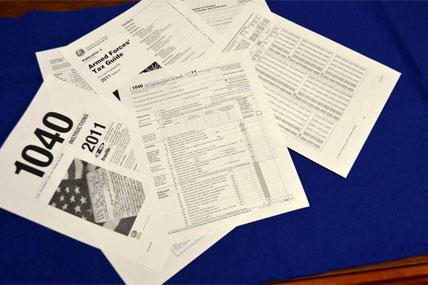It is that time of year again — tax season.
In order to help get you organized and prepared for the grueling task of filing your taxes, here are some commonly missed tax deductions. By taking advantage of them, you have the potential to save hundreds or thousands of dollars.
1. Sales and Income Tax
Many filers forget to include state sales and income tax as deductions. If you live in a state that doesn't impose an income tax, adding up all the tax you've paid on personal and household items can really mount up.
On the other hand, if your state does have an income tax, it's usually a better strategy to claim that as a deduction for more savings unless you made some big-ticket purchases such as a car or boat.
2. Demutualization
If your insurance company switched its status from being a mutual insurer and began offering stock to stockholders, this process of demutualization will save you money if you sold your shares based on what the shares were worth when they were distributed to you as a former policyholder.
3. Charitable Donations
Out-of-pocket charitable contributions are often overlooked, especially if they were in the form of many small donations rather than a few large ones. If you've covered the cost of postage, baked cookies for fundraisers or given rides to the clients of nonprofit organizations, save your receipts. If they total more than $250, you can deduct the amount if you have documentation from your favorite nonprofit. If you provided rides or did other significant driving, claim 14 cents per mile for this deduction.
4. Childcare
If you're a working parent and your kids spend part of the day with a sitter or in child care, claim those expenses as a tax credit. If you have childcare reimbursement through your place of work, you can easily overlook the additional costs you incur beyond the $5,000 or $6,000 allocated by these accounts.
Don't miss out on significant savings; save the receipts for sitters and after-school care. If your children are older and in college, don't forget to deduct the interest you've paid on their student loans throughout the year.
5. Job Search
Job losses and career changes aren't all bad. If you were looking for a job in your previous field; had business cards printed; mailed out resumes; drove to an interview; paid for meals, lodging, and parking for an overnight trip; or paid for advertising or employment agency fees, you can deduct those costs up to 2 percent of your adjusted gross income.
If you are a first-time job seeker, you can't claim those deductions, but you can claim your moving expenses if the new job is more than 50 miles from your old place of residence. You can claim the costs of moving your belongings to the new site and driving your vehicle there as well as parking and toll fees.
6. Mortgage Interest and Remodeling
If you're a homeowner, your luck continues. If you remodeled your existing home, deduct state sales tax for building materials if you're itemizing. If you bought your house, be sure to claim the interest paid on the points on your mortgage.
If you've refinanced, you have to distribute the points interest over the life of the new mortgage. If you've made your home more energy-efficient, there are tax deductions for that, too, including a 10 percent deduction on costs up to $500 for six specific energy-efficient home products, as well as 30 percent of the cost of certain major upgrades.
7. Military Travel
If you are a member of the National Guard or are a military reservist, part of your travel expenses for attending meetings or drills more than 100 miles from home and overnight stay are deductible, even if you don't itemize. You can write off all your lodging cost and half your meal expenses, as well as mileage and tolls if you drove your own vehicle. Mileage is partially reimbursed, as well.
8. Self-Employment
With widespread job loss, many Americans have opted for self-employment — but this freedom does come at a price. Workers not only have to buy their own health insurance, but also pay a hefty self-employment tax.
Make sure to deduct the cost of health insurance premiums you pay for yourself and your family, which reduces your self-employment tax. You're going to have to dig a bit through Schedule SE. Your health insurance figure from Line 29 is subtracted from your calculated self-employment tax on Line 3.
Additional tax deductions for the self-employed include contributions to a Simplified Employee Pension (SEP) IRA, which are made pre-tax, as well as the cost of business meals, ongoing education or training, and business use of your home.
This article was written by Bob Lotich, contributor to GOBankingRates.com and blogger ChristianPF.com. GOBankingRates is a leading consumer banking and personal finance website that specializes in connecting consumers with the best interest rates nationwide.




